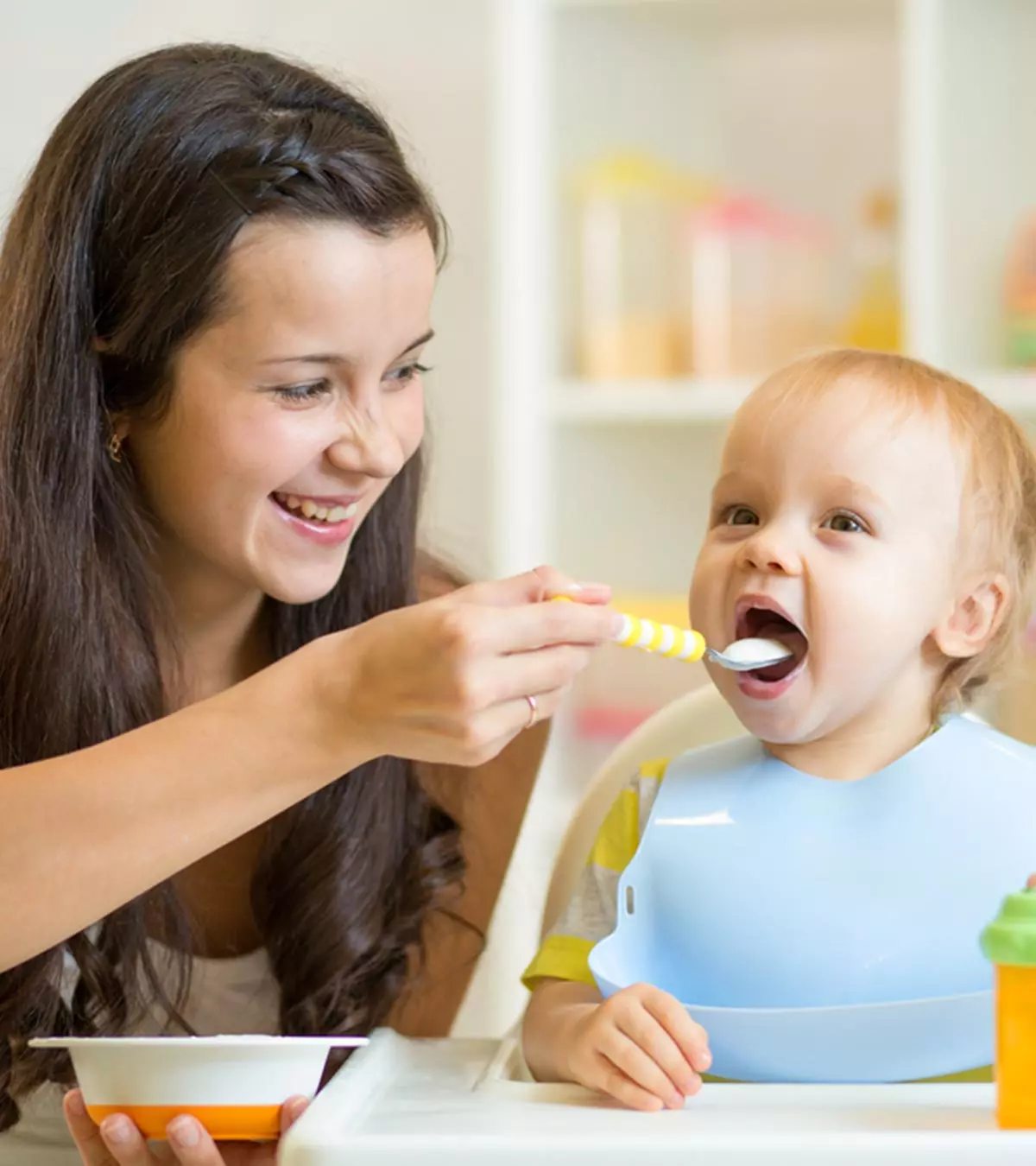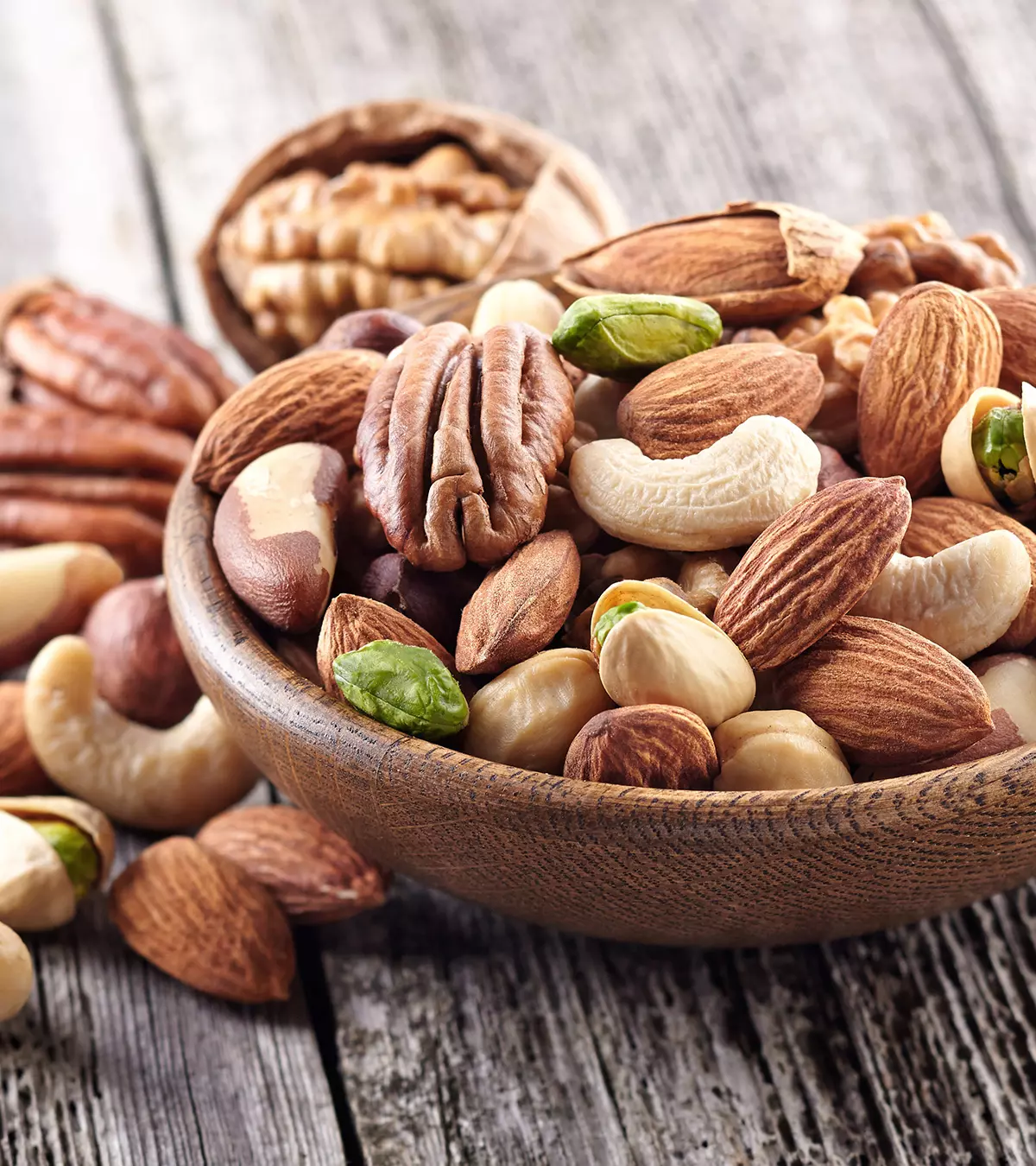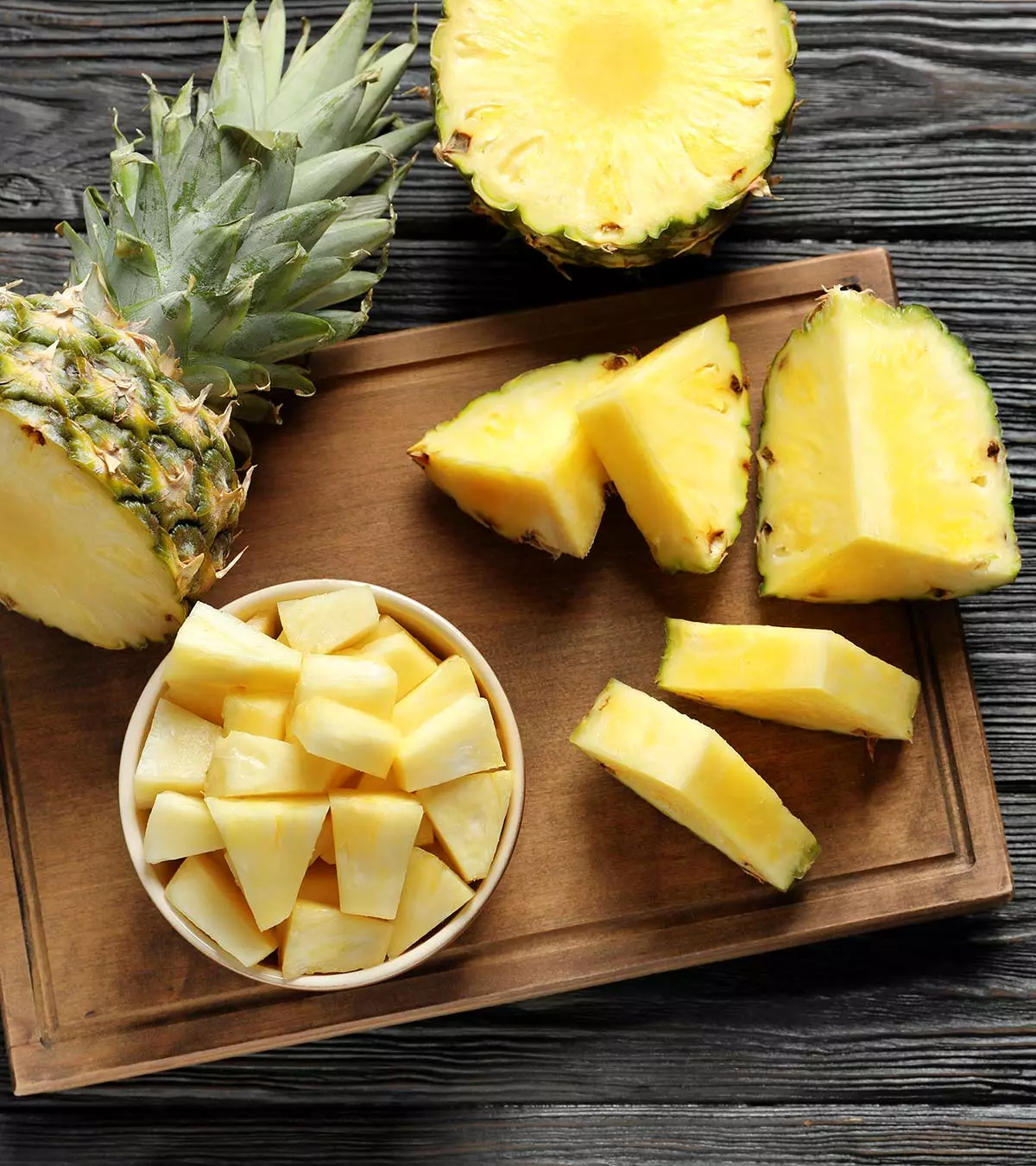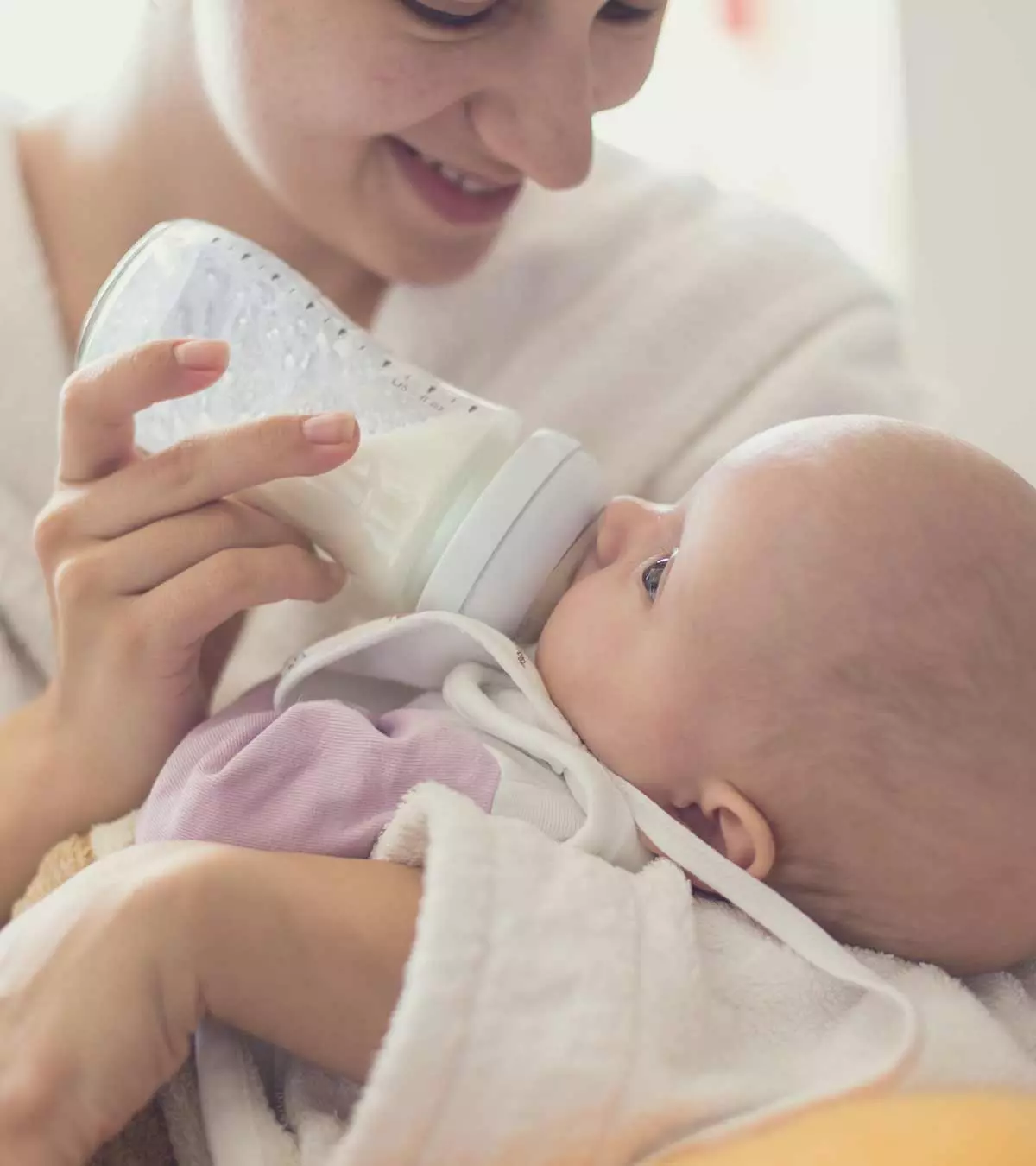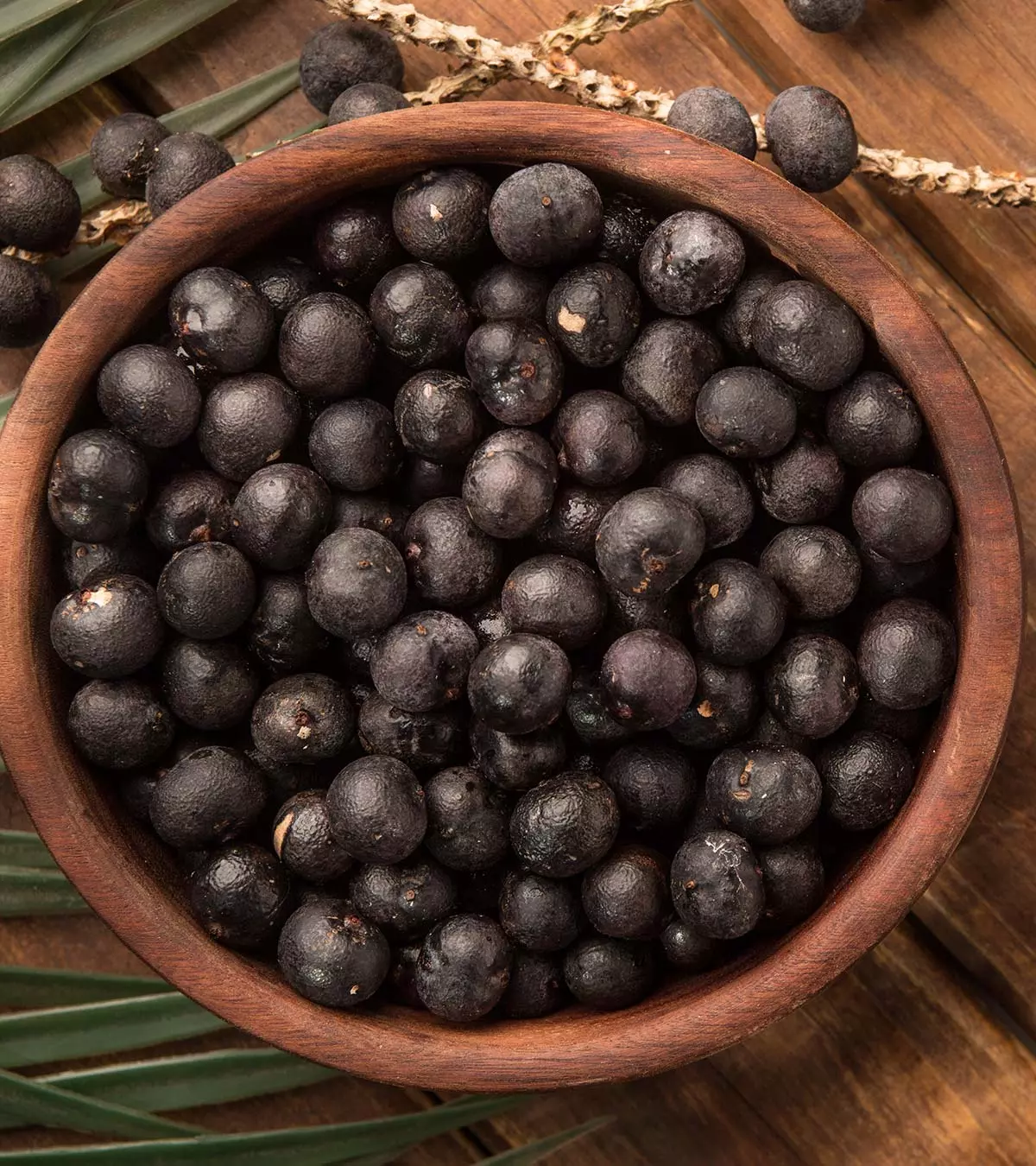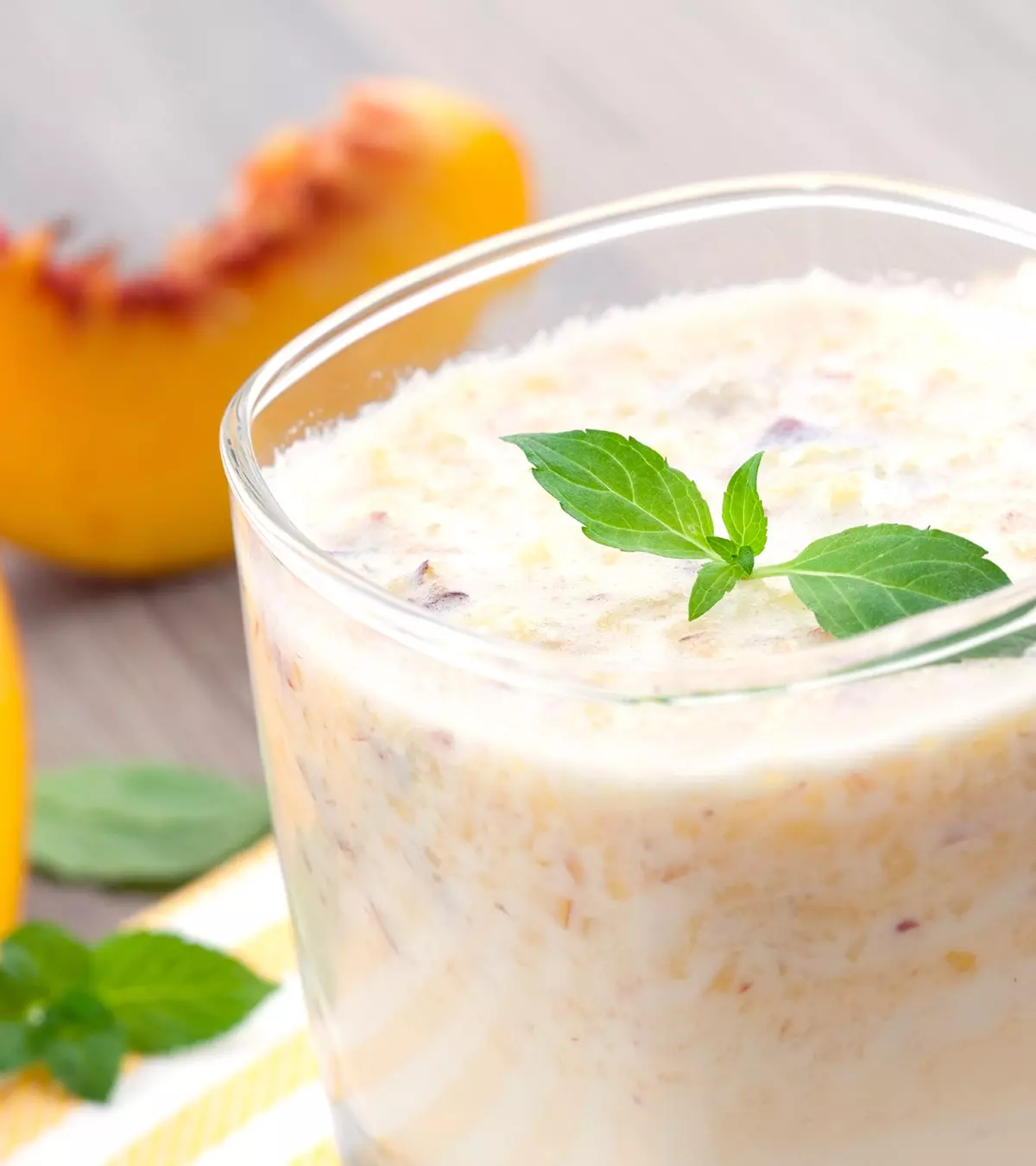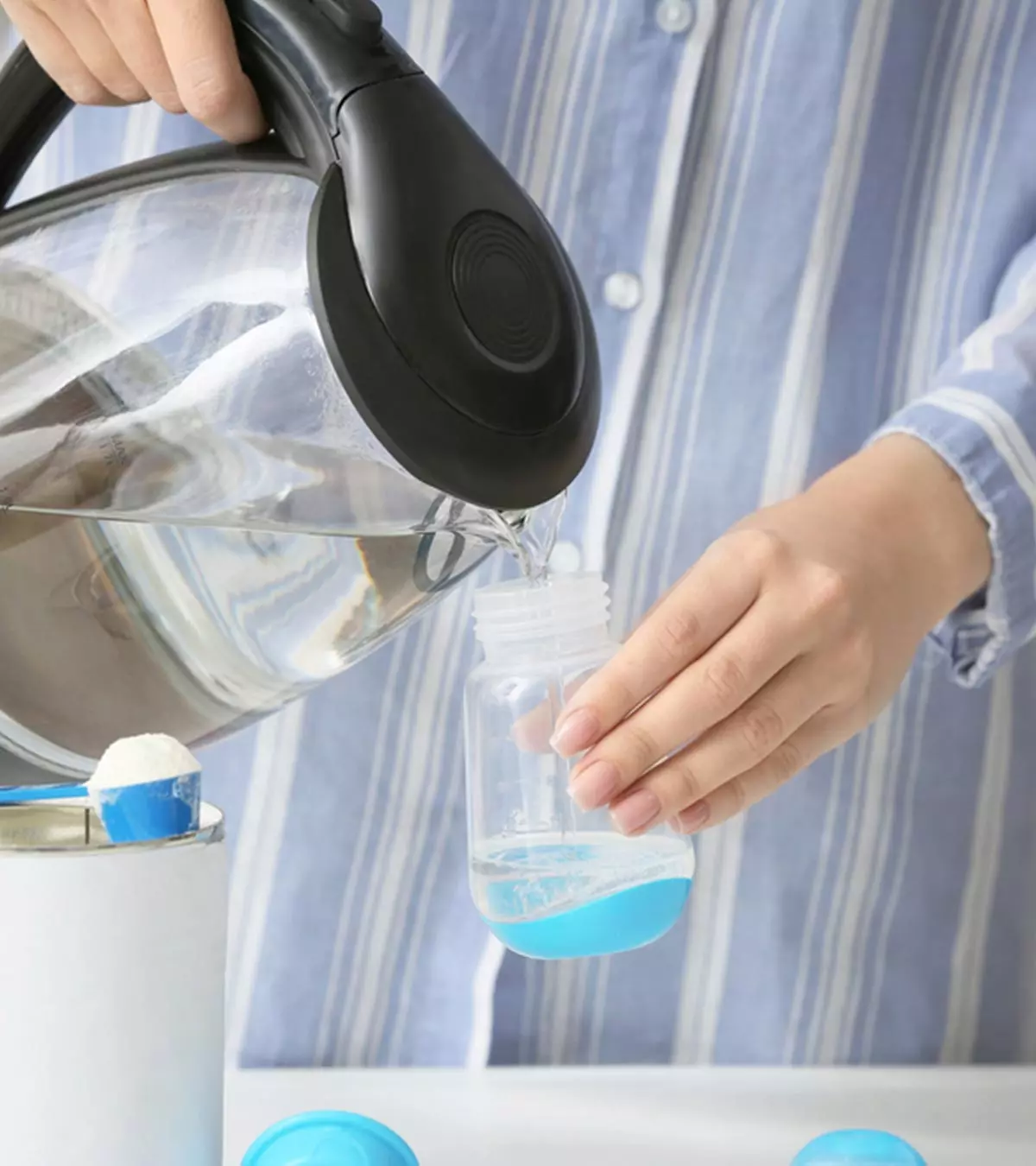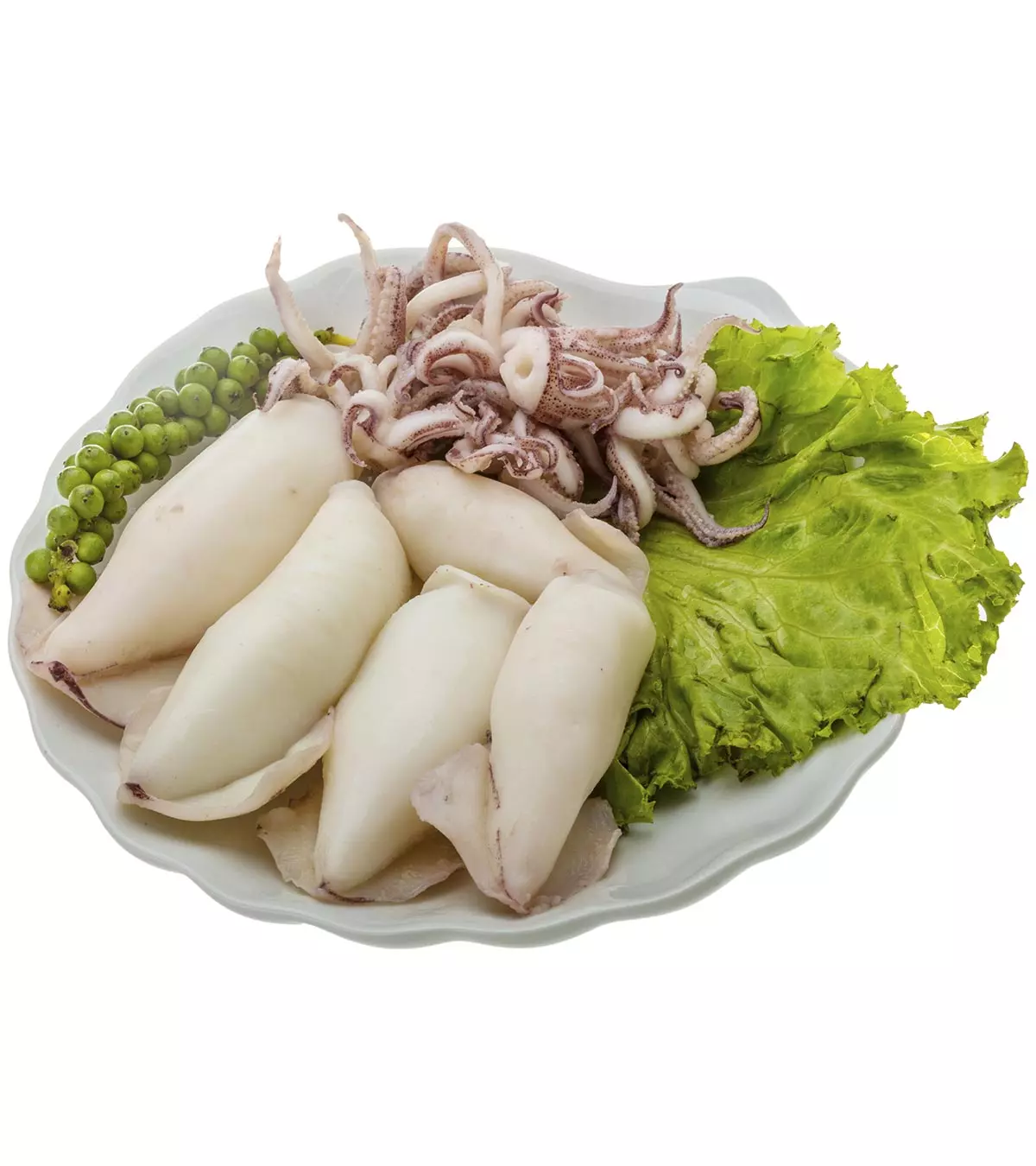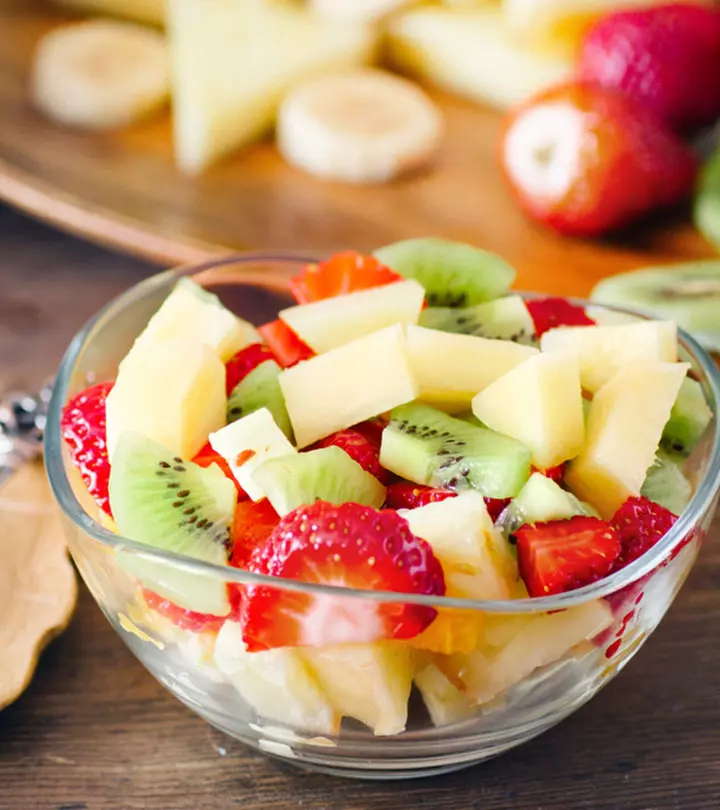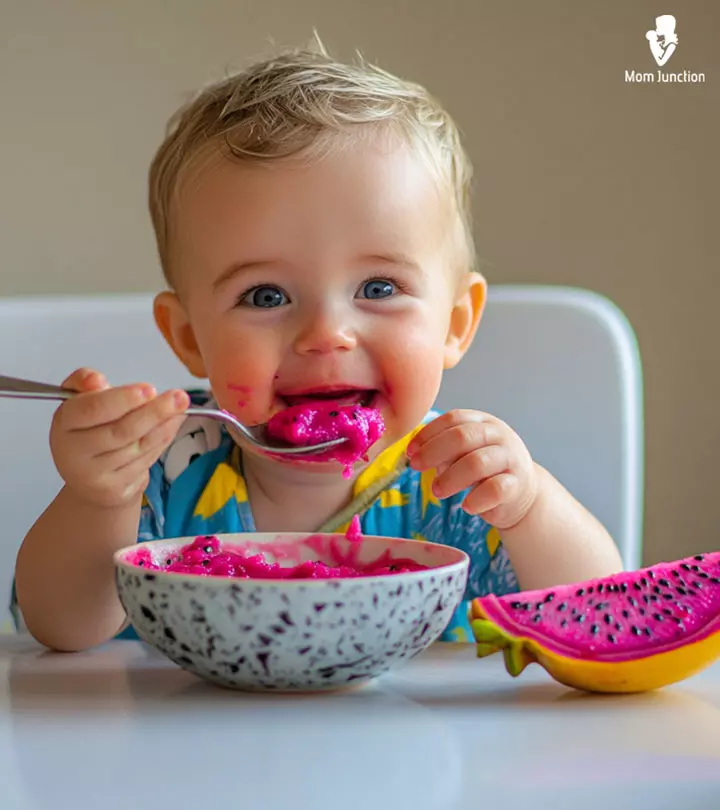
Image: Shutterstock
Imitation crab can be a delicious, inexpensive substitute for crab, offering a similar taste. However, if you are craving this while pregnant, you should know that consuming imitation crab during pregnancy has its share of negative and positive effects. This pseudo-crab meat’s nutritional value accounts for its pros and cons. Hence, knowing the right amount and way to consume it is extremely important. Read on to learn about the consumption of imitation crab while pregnant, including its benefits and drawbacks, tips for safe consumption, and some delicious recipes.
Key Pointers
- Imitation crab is a low-fat and low-calorie food that can help regulate cholesterol levels and protect against chronic diseases.
- It contains high levels of phosphorus and low levels of mercury, making it a safer option for pregnant women.
- However, high levels of salt, preservatives, and sugar in imitation crab can increase the risk of high blood pressure, which can be harmful to both the mother and the baby.
- Undercooked or uncooked imitation crab can pose a threat to the fetus, but cooking it to an internal temperature of 145 degrees Fahrenheit or above can help destroy harmful bacteria, such as listeria.
What Is Imitation Crab?
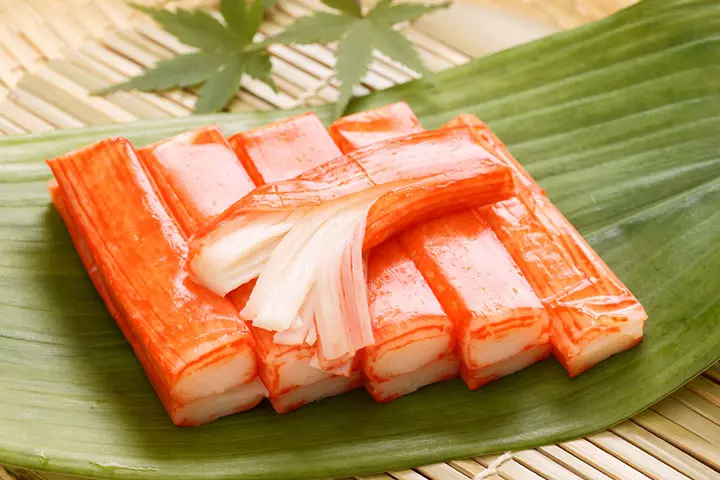
An imitation crab is a type of Japanese fish cake made by blending a fish. Generally, a white fish called Alaskan Pollock is used because of its mild color and odor, along with flavorings, colorants, and other ingredients. Making imitation crab involves rinsing, skimming, grinding, and cooking into an odorless paste called surimi (1). The makers then cut the paste into strips to resemble the leg meat of the crab. In a nutshell, imitation crab gives the yummy taste of crabs without burning a hole in the pocket. And it is readily available at most supermarkets and grocery stores.
The following table indicates the nutritional value per 100 grams of imitation crab meat as per the USDA (2).
| NUTRIENTS | AMOUNT |
|---|---|
| Calories | 95 kcal |
| Carbohydrate | 15 g |
| Protein | 7.62 g |
| Total fat | 0.46 g |
| Sodium | 529 mg |
| Phosphorus | 282 mg |
| Potassium | 90 mg |
| Magnessium | 43 mg |
| Calcium | 13 mg |
| Choline | 13 mg |
| Iron | 0.39 mg |
| Vitamin B12 | 0.57 µg |
Can You Eat Imitation Crab While Pregnant?
Imitation crab can have both benefits and drawbacks. The safety of imitation crab also depends on the type of fish used to make it. Let’s check out the advantages and disadvantages of imitation crab.
Benefits Of Eating Imitation Crab While Pregnant
Imitation crab does not need prior preparation before using it for a recipe and they are cost-effective and easily available as well. Some other nutritional benefits of eating imitation crab include:
1. Low in saturated fat and calories
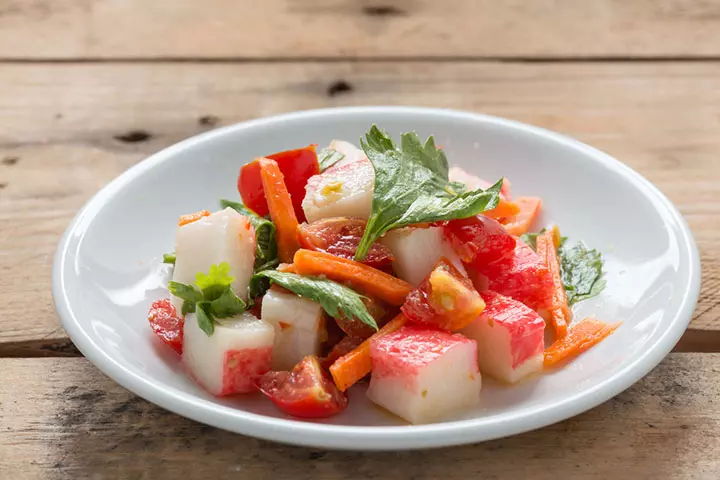
Among several low-calorie seafood options, an imitation crab is probably ideal. Imitation crab is low in fat and calories, which makes it a great addition to your diet if you’re watching your cholesterol. Three ounces of imitation crab contains less than 1 gram of fat, 81 calories, and 17 milligrams of cholesterol (1). Thus, it is a good choice for a maternal diet. A low-fat and low-calorie food will also protect you from chronic diseases.
2. Contains low levels of mercury
Mercury is a contaminant found abundant in certain species of fish. It can negatively impact the nervous system development of the baby. But imitation crab is quite low in mercury. This is because imitation crabs are generally made from Pollock fish, which are known to have low levels of mercury and are considered the ‘best choices’ of seafood as per the FDA (3).
3. Contains a high level of phosphorus
Imitation crab contains a good dose of phosphorus. Phosphorus is present in most parts of our body, mainly teeth and bones. Phosphorus aids in the proper functioning of muscles and kidneys as well as many other functions in our body like healthy nerve function. The recommended dietary allowance of phosphorus for adults is 700 milligrams a day (4). Three ounces of imitation crab provides 240 milligrams of phosphorus (2).
Potential Drawbacks Of Eating Imitation Crab During Pregnancy
Imitation crab is a great alternative to enjoy the taste of crab and offers calories similar to real crab. However, imitation crab is lower in protein, omega-3 fats, and other vitamins and minerals than real crab (1). Some other drawbacks of eating imitation crab include the following.
1. Excess sodium
One of the primary nutritional drawbacks of the imitation crab is the amount of salt it contains. A three-ounce serving of imitation crab contains at least 700-800 milligrams of sodium (1). The recommended upper limit of sodium intake is 2,300 milligrams a day. Several studies have shown that excess levels of sodium in the body can increase the risk of high blood pressure, as well as edema or swelling in pregnancy (5). Therefore, make sure to limit eating imitation crab during pregnancy to weekly.
2. Added sugar content

A stick of imitation crab contains a large amount of added sugar, around 5 grams per 3 ounces (1). This is a little over a teaspoon of sugar, which many people would not expect in fish. But artificial crab is processed and has sugar and salt added.
3. Preservatives
Canned imitation crab may contain food preservatives and additives such as MSG, sodium benzoate, and other phosphate-based additives, which increase the product’s shelf-life (1). However, these compounds may not be healthy. For instance, MSG has been shown to affect fetal growth and skeletal development adversely and has been proven to be toxic and teratogenic (6).
4. Incorrect ingredient labels
In a 2017 study, the DNA analysis result of 16-surimi-based products showed mislabeling and incorrect information regarding the ingredient list and the type of fish or other seafood used. This could potentially be a health hazard if someone is allergic to any of the actual ingredients (1) (7).
Therefore, make sure to talk to your healthcare provider and nutritionist before making any food choices during pregnancy for a more personalized plan.
Precautions To Take When Consuming Imitation Crab
Below are some tips and precautions you can observe to enjoy imitation crab during pregnancy safely.
1. Check the ingredients
Always read the ingredients list on the label to determine what kind of fish it contains. Eat imitation crab made with only Alaskan Pollock. Check for the presence of preservatives and additives when picking canned imitation crab. If eating at a restaurant, ask the establishment about the ingredients. Select options containing zero to minimal quantities of preservatives, salt, and other additives.
2. Avoid raw or undercooked imitation crab
Raw seafood, including imitation crab, can contain harmful bacteria, especially listeria, which causes the foodborne illness listeriosis. According to the Centers for Disease Control and Prevention (CDC) data, in the US, one in every 25,000 pregnant women contracts a listeria infection (8). Since the bacteria can cross the placenta, it can also affect the unborn baby’s health.
3. Cook at a safe temperature
According to the US food safety rules, most of the seafood, including imitation crab, should be cooked at an internal temperature of 145°F (63°C) or above to destroy all the bacteria in the imitation crab (9).

4. Avoid imitation crab left open for days
Do not eat imitation crab lying open for more than three days. It might have harmful bacteria. Even if you ate food items stored for days earlier, you must be careful during pregnancy since it changes your immunity. According to the World Health Organization (WHO), pregnant women are 20 times more susceptible to catching diseases than any other healthy adults (10).
How To Include Imitation Crab In Your Diet
There are plenty of ways to include this imitation seafood in your diet.
Some include:
- Combine imitation crab with herbs and mayonnaise to make a delicious sandwich filling.
- Toss chunks of imitation crab in a green salad. You can also add pieces of it in vegetable soup.
- Stir diced imitation crab in low-fat sour cream or Greek yogurt and then sprinkle some herbs and pepper to make a yummy dip.
Here are some easy imitation crab recipes for you to follow.
1. Imitation Crab Salad
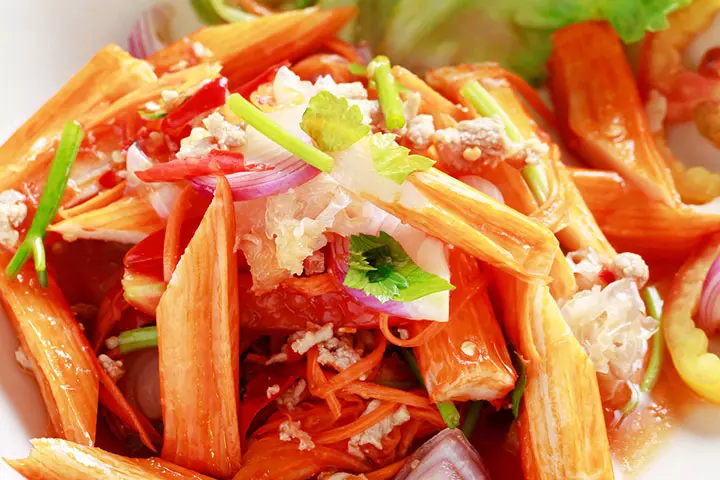
You Will Need:
- 8 ounces of imitation crabmeat, chopped
- 1 ½ cups of cooked rice, cooked
- 1 cup of mayonnaise
- 4 hard-boiled eggs, cooled and chopped
How To:
- Combine rice, eggs, and imitation crab meat in a large bowl.
- Stir in mayonnaise. If the salad looks dry to you, then you can add some more mayonnaise.
- Cover and refrigerate overnight and serve with brown bread toast.
2. Imitation Crab Patties
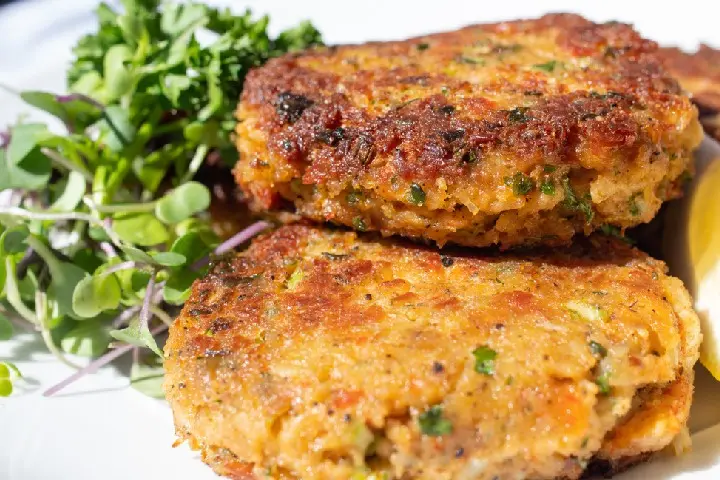
You will need:
- 8 ounces of imitation crabmeat, chopped and flaked
- 1 cup breadcrumbs
- 1-2 eggs
- 6 green onions, chopped
- 2 tablespoons olive oil
- 2 tablespoons mayonnaise
- 1 teaspoon dry mustard
- ½ teaspoon ground pepper
- 1 teaspoon garlic powder
- ¼ teaspoon seasoning
- 1 lemon, juice
How to prepare:
- In a non-stick pan, heat 1 tbsp olive oil over medium heat.
- Cook green onions into the pan until they are soft.
- In a bowl, mix the crabmeat, eggs, breadcrumbs, mayonnaise, dry mustard, onion, pepper, garlic powder, seasoning, lemon, salt, and pepper well.
- Make half-inch thick patties of the mixture. You can make 7-8 patties.
- In the non-stick pan, heat 1 tbsp oil on medium heat and cook the cakes until they turn golden brown.
- Flip the patties and cook the other side until golden brown, too.
- Place the cooked patties (or cake) on paper towels and serve hot with mayonnaise or sauce.
3. Imitation Crab Bites

You will need:
- 8 ounces of imitation crabmeat sticks
- ¼ cup salted butter, melted
- Any seasoning of your choice (such as Old Bay seasoning or Cajun seasoning)
How to prepare:
- Cut the imitation crab meat stick into 1-inch pieces.
- Transfer the pieces to a bowl and add 2 tbsp of melted butter.
- Toss them together well and sprinkle the seasoning.
- Transfer the seasoned pieces to the air fryer basket, making sure to spread evenly.
- Cook them at 380°F for 9-10 minutes, turn off and flip the plate, and then, again, cook for 9-10 minutes.
- Take out the basket and transfer the crispy bites to a serving plate. Enjoy with a sauce or mayonnaise.
Frequently Asked Questions
1. Is imitation crab meat pasteurized?
Imitation crab meats available on the market can be both pasteurized and unpasteurized. Therefore, when buying imitation crab meat to eat during pregnancy, look at the label for pasteurized ones.
2. How often can I eat California rolls while pregnant?
Expecting women can eat two to three servings of low-mercury fish per week, including California rolls (3). However, ensure the imitation crab is fully cooked and check for high mercury content. California rolls are popular sushi rolls made with imitation crab meat, usually prepared from pollock’s deboned, washed, and minced flesh (1). Mercury in seafood like pollock is relatively low and considered safe for pregnancy consumption.
3. Can I eat crab sushi while pregnant?
Yes, sushi made with cooked fish and shellfish, such as crab, is safe during pregnancy (3).
4. Can I eat sushi with imitation crab meat while pregnant?
Obstetrician and gynecologist Dr. Veena Madhankumar says, “It is generally considered safe to consume sushi with imitation crab meat during pregnancy, provided that the imitation crab meat is made from cooked fish. Traditional sushi often includes raw fish, which can pose a risk of foodborne illness during pregnancy. Therefore, verifying that any sushi consumed while pregnant is prepared with fully cooked ingredients is crucial to minimize potential health risks.”
If you love seafood and do not possess any seafood allergies, you may want to gorge on delectable fish and seafood even while you’re pregnant. Consuming certain seafood such as imitation crab during pregnancy may be beneficial but presents a few disadvantages, as it could have added sugars, preservatives, and increased sodium content. However, when consumed in recommended amounts, a fresh and properly cooked imitation crab could be safe to eat during pregnancy. Nevertheless, you may seek your doctor’s advice and follow the necessary food safety guidelines to include this tasty seafood in your pregnancy diet.
Infographic: Crucial Points To Note Before Consuming Imitation Crab
Imitation crab is a widely consumed seafood product and a common additive in dishes such as sushi, salads, and sandwiches. If you are a seafood enthusiast, you must review certain precautions before consuming certain seafood, such as imitation crab, while pregnant. This infographic can help you comprehend the vital safety measures to consider before eating imitation crab during pregnancy. Illustration: Momjunction Design Team
Illustration: Is It Safe To Eat Imitation Crab During Pregnancy?

Image: Dalle.E/MomJunction Design Team
References
- What Is Imitation Crab And Should You Eat It?
https://www.anti-a.org/news/en/what-are-superfoods-and-why-should-you-eat-them-7knkz-et54j-9tmwg-gbywc - Imitation crab meat.
https://fdc.nal.usda.gov/food-details/2706568/nutrients - Advice about Eating Fish.
https://www.fda.gov/media/102331/download?attachment - Phosphorus in diet.
https://medlineplus.gov/ency/article/002424.htm - Paula Juliet Scaife and Markus Georg Mohaupt; (2017); Salt, aldosterone and extrarenal Na+ – sensitive responses in pregnancy
https://pmc.ncbi.nlm.nih.gov/articles/PMC5526786/ - Hadeer M Shosha et al.; (2023); Effect of monosodium glutamate on fetal development and progesterone level in pregnant Wistar Albino rats.
https://pmc.ncbi.nlm.nih.gov/articles/PMC10104942/ - Alice Giusti et al.; (2017); Advances in the analysis of complex food matrices: Species identification in surimi-based products using Next Generation Sequencing technologies.
https://journals.plos.org/plosone/article?id=10.1371/journal.pone.0185586 - People at Increased Risk for Listeria Infection.
https://www.cdc.gov/listeria/risk-factors/index.html - Safe Selection and Handling of Fish and Shellfish.
https://www.foodsafety.gov/blog/safe-selection-and-handling-fish-and-shellfish - Listeriosis.
https://www.who.int/news-room/fact-sheets/detail/listeriosis
Community Experiences
Join the conversation and become a part of our nurturing community! Share your stories, experiences, and insights to connect with fellow parents.

Dr. Veena Madhankumar is an experienced obstetrician and gynecologist with 25 years of clinical expertise. She completed her MBBS from Coimbatore Medical College, India, in 1999 and pursued her MD in Obstetrics and Gynecology from Sri Ramachandra Medical College, Chennai, India. Dr. Madhankumar has been associated with iCliniq for over a decade, providing expert medical consultations and guidance. She has also established a practical laparoscopy training course.
Dr. Veena Madhankumar is an experienced obstetrician and gynecologist with 25 years of clinical expertise. She completed her MBBS from Coimbatore Medical College, India, in 1999 and pursued her MD in Obstetrics and Gynecology from Sri Ramachandra Medical College, Chennai, India. Dr. Madhankumar has been associated with iCliniq for over a decade, providing expert medical consultations and guidance. She has also established a practical laparoscopy training course.
Read full bio of Ria Saha
Read full bio of Swati Patwal
Read full bio of Lorraine Teron










